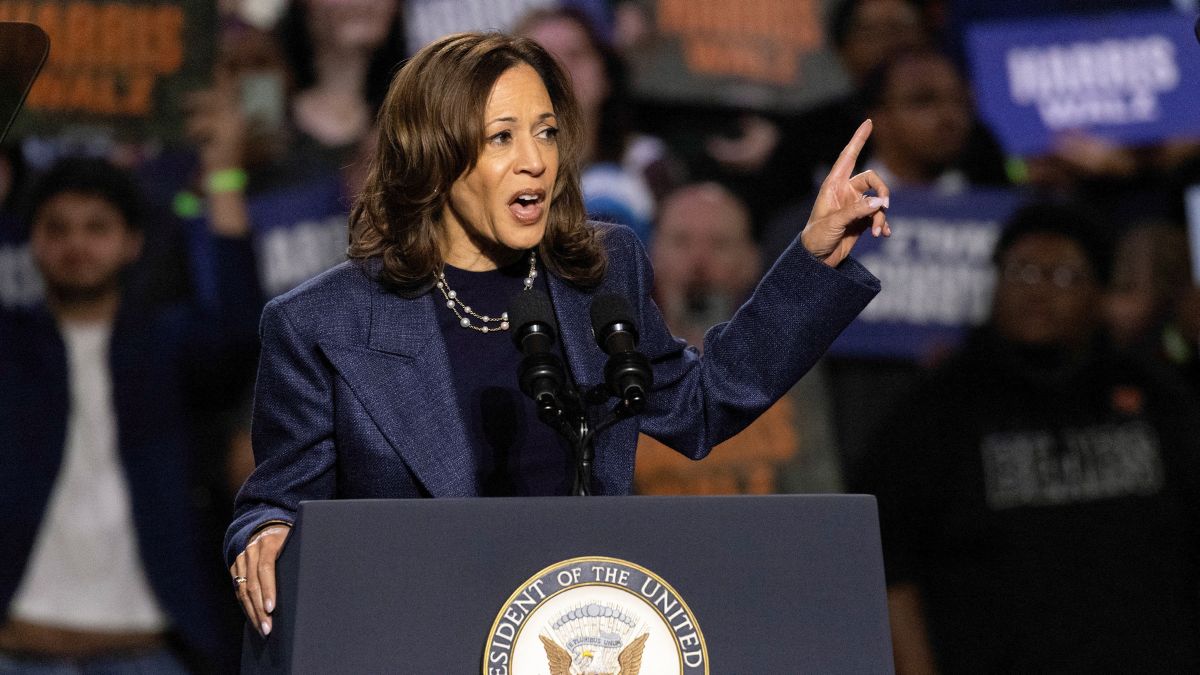A historic battle begins between Democrat Kamala Harris and Republican Donald Trump on November 5, as Americans head out to vote in the crucial 2024 presidential elections.
Million of votes have already been cast, which is more than a third of the total turnout from 2020. Early voting also saw a notable increase in Republican participation compared to four years ago, following Trump’s softened stance on in-person voting on Election Day.
Arizona, Georgia, Nevada, and Pennsylvania officially ended their early voting periods on Friday. Swing states are expected to play a massive role in determining the next president, with both campaigns heavily targeting these battlegrounds.
A Trump victory would make history in multiple ways: he would become the first president-elect convicted of a felony, due to his hush-money case in New York, and the second president to win non-consecutive terms after Grover Cleveland. His victory would also give him the authority to stop other pending federal investigations against him.
Meanwhile, Harris aims to make her own historic mark, as the first woman, first Black woman, and first person of South Asian descent to become the US President. Four years ago, she became the first to break these barriers by serving as President Joe Biden’s vice president.
ALSO READ | Explained: How the US presidential election works
Where will Harris spend the election night?
Kamala Harris plans to watch the election night at her alma mater, Howard University, in Washington DC - a smart choice for what could be the most defining night of her career.
Known as “the Black Harvard,” Howard holds a central place in Harris’s life story. Since her graduation in 1986, she has frequently returned at key moments.
“Howard University is one of the most important aspects of my life,” she stated in 2019 while running in the Democratic primary, adding, “and it is where I first ran for my first elected office,” as a student council representative.
“So this is where it all began.”
Tuesday evening will bring Harris back to Howard’s campus, where she could make history as the first Black woman elected as US president.
Founded by the US Congress in 1867, two years after the Civil War ended slavery in the South, Howard is named after Oliver Howard, a Northern general who championed higher education for freed slaves.
Now known as one of the top Historically Black Colleges and Universities (HBCUs) and drawing predominantly Black and minority students, Howard University serves around 11,000 students.
The campus has several imposing red-brick buildings with classical white columns encircling a large lawn known as “The Yard.”
In August, Harris used Howard’s amphitheatre to prepare for her one debate with Trump, reminding students there that, “someday, you might be running for president of the United States.”
ALSO READ | How US election 'calls' are made in November when formal results are certified in January
What to expect from the elections
With 538 electoral college votes available nationwide, the candidate who reaches 270 wins the presidency.
As November 5 approaches, national and swing state polls have tightened, indicating the possibility for razor-thin victory margins in key states, which may require recounts.
Some results might come in more slowly than usual due to shifts in state election processes since 2020, particularly in the seven swing states likely to decide the outcome, BBC reported.
In 2016, Trump won Pennsylvania, Michigan, and Wisconsin, but Biden flipped them in 2020. North Carolina, Georgia, Arizona, and Nevada complete the list of crucial battlegrounds. If each candidate secures the states most likely to vote for them, Harris would still need 44 votes to reach 270, while Trump would need 51. These key swing states hold 93 electoral votes altogether.
Historically, voters expect to know the election result by late election night or early the next morning. However, tight margins might cause the media outlets to delay their projections, and recounts and legal challenges could further extend the wait.
Over 100 pre-election lawsuits, including Republican-led challenges on voter eligibility and voter roll management, have already been filed across the country.
ALSO READ | When was the first US election held? What was the result?
The ‘celebrity graduates’ of Howard
Howard University counts several high-profile alumni among its graduates, including author and Nobel laureate Toni Morrison and civil rights leader Thurgood Marshall, who became the first Black US Supreme Court justice in 1967.
Inspired by Marshall, Harris chose Howard in 1982, where she joined the debate club, took part in anti-apartheid protests, and became a member of Alpha Kappa Alpha (AKA), one of the largest sororities in the country, founded at Howard in 1908.
Though AKA does not endorse candidates, its network of around 300,000 members has offered Harris extensive activist support.
With inputs from AFP


)

)
)
)
)
)
)
)
)



